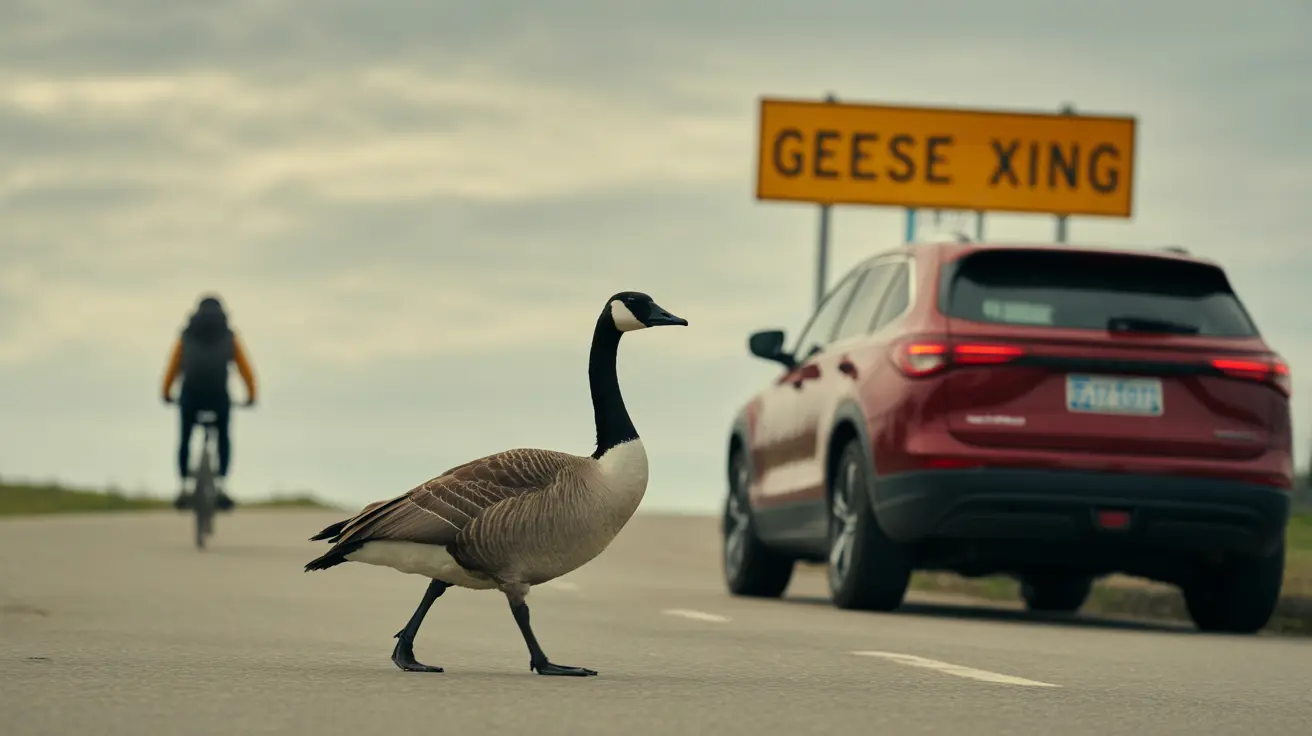A disturbing incident involving wildlife has brought New Jersey's animal cruelty laws into sharp focus after multiple geese were struck and killed in Spotswood. The incident, which occurred on July 14 near a lake along Devoe Avenue, has resulted in animal cruelty charges against the suspect involved in the collision.
The case highlights the serious nature of wildlife protection in New Jersey and the legal consequences faced by those who harm animals, whether intentionally or through negligence. As suburban areas continue to share space with local wildlife, this incident serves as a crucial reminder of our responsibility to protect and coexist with urban wildlife.
Wildlife Road Collisions in New Jersey
The incident took place around 6:45 p.m., in an area known for wildlife activity, particularly near the lake where geese frequently cross. Such encounters between vehicles and wildlife are not uncommon in suburban New Jersey, but this particular case drew special attention from law enforcement due to its circumstances.
Preventing Wildlife Road Deaths
While this case is under legal investigation, there are several general safety measures drivers can take to avoid wildlife collisions:
- Reduce speed in areas known for wildlife crossing
- Stay alert during dawn and dusk when animals are most active
- Use high beams when appropriate to improve visibility
- Watch for wildlife crossing signs and take them seriously
- Maintain a safe following distance to allow for sudden stops
Animal Cruelty Penalties in NJ
New Jersey takes animal cruelty seriously, with a tiered system of penalties depending on the nature and severity of the offense. Charges can range from disorderly persons offenses to more serious indictable crimes, each carrying distinct legal consequences.
Enforcement of Animal Welfare Laws
Local authorities work closely with animal welfare organizations to investigate and prosecute cases of animal cruelty. This collaborative approach ensures that violations are properly documented and prosecuted according to state laws.
Humane Treatment of Urban Wildlife
As urban development continues to overlap with wildlife habitats, communities must adapt to ensure the safety of both residents and local wildlife. This includes:
- Installing appropriate warning signs in known wildlife crossing areas
- Implementing traffic calming measures in high-risk zones
- Educating residents about local wildlife patterns
- Creating safe passage corridors for wildlife
Frequently Asked Questions
What legal penalties can someone face in New Jersey for harming wildlife?
New Jersey's animal cruelty laws provide for various levels of penalties, ranging from disorderly persons offenses to indictable crimes. Penalties may include fines, mandatory counseling, community service, and in serious cases, imprisonment. The exact punishment depends on the nature and intent of the offense.
Are Canada geese protected in New Jersey?
Yes, Canada geese are protected under various state and federal regulations. Drivers are required to exercise reasonable care to avoid collisions with wildlife, including geese. When encountering geese crossing roads, drivers should stop safely and allow the animals to cross.
How can communities help prevent wildlife collisions?
Communities can work with local authorities to implement wildlife protection measures such as warning signs, reduced speed zones in high-risk areas, and public education programs about wildlife safety. Residents should report frequent wildlife crossing areas to local authorities for appropriate action.
A Call for Vigilance
This unfortunate incident serves as a reminder of our collective responsibility to protect wildlife in our communities. As we share our spaces with local fauna, awareness and adherence to animal protection laws become increasingly important. Drivers are encouraged to remain vigilant, especially in areas known for wildlife activity, and to report any incidents of animal cruelty to local authorities.






